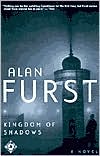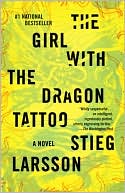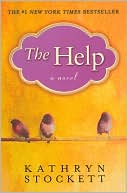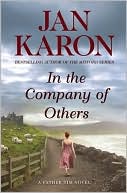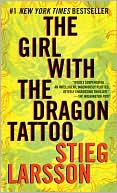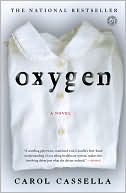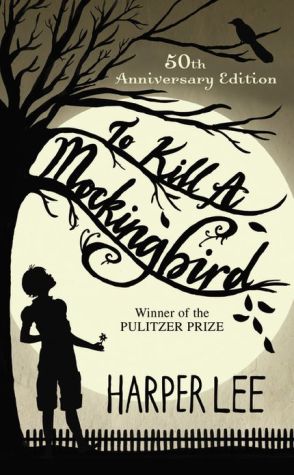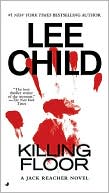Kingdom of Shadows
In spymaster Alan Furst's most electrifying thriller to date, Hungarian aristocrat Nicholas Morath—a hugely charismatic hero—becomes embroiled in a daring and perilous effort to halt the Nazi war machine in eastern Europe.\ From the Hardcover edition.
Search in google:
In spymaster Alan Furst's most electrifying thriller to date, Hungarian aristocrat Nicholas Morath a hugely charismatic hero becomes embroiled in a daring and perilous effort to halt the Nazi war machine in eastern Europe.From the Hardcover edition.Robert J. HughesA triumph: evocative, heartfelt, knowing and witty.
On the tenth of March 1938, the night train from Budapest pulled into the Gare du Nord a little after four in the morning. There were storms in the Ruhr Valley and down through Picardy and the sides of the wagon-lits glistened with rain. In the station at Vienna, a brick had been thrown at the window of a first-class compartment, leaving a frosted star in the glass. And later that day there'd been difficulties at the frontiers for some of the passengers, so in the end the train was late getting into Paris.\ Nicholas Morath, traveling on a Hungarian diplomatic passport, hurried down the platform and headed for the taxi rank outside the station. The first driver in line watched him for a moment, then briskly folded his Paris-Midi and sat up straight behind the wheel. Morath tossed his bag on the floor in the back and climbed in after it. "L'avenue Bourdonnais," he said. "Number eight."\ Foreign, the driver thought. Aristocrat. He started his cab and sped along the quai toward the Seventh Arrondissement. Morath cranked the window down and let the sharp city air blow in his face.\ 8, avenue de la Bourdonnais. A cold, haut bourgeois fortress of biscuit-colored stone block, flanked by the legations of small countries. Clearly, the people who lived there were people who could live anywhere, which was why they lived there. Morath opened the gate with a big key, walked across the courtyard, used a second key for the building entry. "Bonsoir, Séléne," he said. The black Belgian shepherd belonged to the concierge and guarded the door at night. A shadow in the darkness, she came to his hand for a pat, then sighed as she stretched back out on the tile. Séléne, he thought, goddess of the moon.\ Cara's apartment was the top floor. He let himself in. His footsteps echoed on the parquet in the long hallway. The bedroom door was open, by the glow of a streetlamp he could see a bottle of champagne and two glasses on the dressing table, a candle on the rosewood chest had burned down to a puddle of golden wax.\ "Nicky?"\ "Yes."\ "What time is it?"\ "Four-thirty."\ "Your wire said midnight." She sat up, kicked free of the quilts. She had fallen asleep in her lovemaking costume, what she called her "petite chemisette," silky and black and very short, a dainty filigree of lace on top. She leaned forward and pulled it over her head, there was a red line across her breast where she'd slept on the seam.\ She shook her hair back and smiled at him. "Well?" When he didn't respond she said, "We are going to have champagne, aren’t we?"\ Oh no. But he didn't say it. She was twenty-six, he was forty-four. He retrieved the champagne from the dressing table, held the cork, and twisted the bottle slowly until the air hissed out. He filled a glass, gave it to her, poured one for himself.\ "To you and me, Nicky," she said.\ It was awful, thin and sweet, as he knew it would be, the caviste in the rue Saint-Dominique cheated her horribly. He set his glass on the carpet, went to the closet, began to undress.\ "Was it very bad?"\ Morath shrugged. He'd traveled to a family estate in Slovakia where his uncle's coachman lay dying. After two days, he died. "Austria was a nightmare," he said.\ "Yes, it's on the radio."\ He hung his suit on a hanger, bundled up his shirt and underwear and put it in the hamper.\ "Nazis in the streets of Vienna," he said. "Truckloads of them, screaming and waving flags, beating up Jews."\ "Like Germany."\ "Worse." He took a fresh towel off a shelf in the closet.\ "They were always so nice."\ He headed for the bathroom.\ "Nicky?"\ "Yes?"\ "Come sit with me a minute, then you can bathe."\ He sat on the edge of the bed. Cara turned on her side, pulled her knees up to her chin, took a deep breath and let it out very slowly, pleased to have him home at last, waiting patiently for what she was showing him to take effect.\ Oh well. Caridad Valentina Maria Westendorf (the grandmother) de Parra (the mother) y Dionello. All five feet, two inches of her. From one of the wealthiest families in Buenos Aires. On the wall above the bed, a charcoal nude of her, drawn by Pablo Picasso in 1934 at an atelier in the Montmartre, in a shimmering frame, eight inches of gold leaf Outside, the streetlamp had gone out. Through a sheer curtain, he could see the ecstatic gray light of a rainy Parisian morning.\ Morath lay back in the cooling water of the bathtub, smoking a Chesterfield and tapping it, from time to time, into a mother-of-pearl soap dish. Cara my love. Small, perfect, wicked, slippery. "A long, long night," she'd told him. Dozing, sometimes waking suddenly at the sound of a car. "Like blue movies, Nicky, my fantasies, good and bad, but it was you in every one of them. I thought, he isn't coming, I will pleasure myself and fall dead asleep." But she didn't, said she didn't. Bad fantasies? About him? He'd asked her but she only laughed. Slavemaster? Was that it? Or naughty old Uncle Gaston, leering away in his curious chair? Perhaps something from de Sade—and now you will be taken to the abbot's private chambers.\ Or, conversely, what? The "good" fantasies were even harder to imagine. The Melancholy King? Until tonight, I had no reason to live. Errol Flynn? Cary Grant? The Hungarian Hussar?\ He laughed at that, because he had been one, but it was no operetta. A lieutenant of cavalry in the Austro-Hungarian army, he'd fought Brusilov's cossacks in the marshes of Polesia, in 1916 on the eastern front. Outside Lutsk, outside Kovel and Tarnopol. He could still smell the burning barns.\ From the Hardcover edition.
\ From Barnes & NobleOur Review\ The World at Night\ Kingdom of Shadows is the sixth, stand-alone volume in Alan Furst's ongoing portrait of "the world at night": the cataclysmic 12-year period of Adolf Hitler's ascendancy. Following closely on the heels of 1999's Red Gold, an authoritative account of life in the French Resistance, Furst's latest is a compelling story of a world on the brink of war and a meticulously detailed re-creation of a vanished era. \ Kingdom of Shadows begins in March of 1938 and ends during the summer of 1939, a period of uneasy "peace" in which national boundaries shift overnight, political alliances are forged and broken, anti-Semitic sentiments proliferate, and the armies of Europe mobilize for war. Significant events from this period -- all of them part of the fabric of this book -- include Hitler's annexation of Austria, the German occupation of Czechoslovakia, and the nonaggression pact between Stalin and Hitler, a pact that paves the way for the invasion of Poland and the formal beginning of the war.\ Furst shows us these events from the partisan perspective of his deeply sympathetic hero, Nicholas Morath, a Hungarian aristocrat living in exile in Paris. Morath, on the surface, is an unlikely sort of hero. Part owner of a successful advertising agency, he cultivates the appearance of a bon vivant and ladies' man born to a life of privilege. Beneath that surface, he is a committed anti-Fascist, a decorated war hero, and a true descendant of his Magyar ancestors. Following the directives of his wealthy, enigmatic uncle, Count Janos Polanyi, Morath travels from his home in Paris to the trouble spots of Europe, gathering information, collecting money from anti-Nazi sympathizers, doing "favors" for influential friends, and putting himself repeatedly in harm's way.\ Morath's adventures form the substance of this plotless, peripatetic novel, and they take him from the mountain fortresses of Czechoslovakia to a Romanian prison, from the aristocratic enclaves of Budapest to the decadent environs of Nazi-dominated Vienna. Together, they illuminate the changing face of a world sliding rapidly into chaos and night. They also illuminate the essential nature of Morath himself, a complex, romantic, thoroughly admirable figure who has dedicated his life to the destruction of National Socialism.\ Furst has been compared to a great many writers -- Eric Ambler, Graham Greene, John le Carré -- but none of these comparisons seem particularly apt. Furst is very much his own man, and his six-volume cycle of war novels represents a unique achievement. At their best, as in Kingdom of Shadows, these books literally bring the past to life, resurrecting the sights, sounds, and tensions of a bygone world with passion, artistry, and scrupulous historical accuracy.\ --Bill Sheehan\ Bill Sheehan reviews horror, suspense, and science fiction for Cemetery Dance, The New York Review of Science Fiction, and other publications. His book-length critical study of the fiction of Peter Straub, At the Foot of the Story Tree, has recently been published by Subterranean Press (www.subterraneanpress.com).\ \ \ \ \ \ Boston GlobeFurst's most richly textured and, arguably, finest espionage novel.\ \ \ Eugen WeberSubtly spun, sensitive to nuances, generous with contemporary detail and information discreetly conveyed..It’s hard to overestimate Kingdom of Shadows.\ \ \ \ \ ForbesThree sentences into Kingdom of Shadows, you are already traveling deep in Alan Furst's world--a dark, sharply etched, pre-war Europe, electric with menace: "On March 10, 1938, the night train from Budapest pulled into the Gare du Nord... There were storms in the Ruhr Valley and down through Picardy and the sides of the wagons-lits glistened with rain. In the station at Vienna, a brick had been thrown at the window of the first-class compartment, leaving a frosted star in the glass." In six novels, beginning with the revelatory, intricate Night Soldiers--one of the richest spy books ever written--Furst has packed his brooding geography of the '30s and '40s with Nazi spymasters, Soviet assassins, Balkan bandits, rioting Fascists and ordinary neighbors turned slippery and vicious by fear. The Furstian hero, as with Kingdom of Shadows's Hungarian aristocrat Nicolas Morath, operates under the grinding pressure of imminent violence with too little information and too few decent choices. Though he's American, Furst has so far created a far bigger splash in England than back home, perhaps because he has removed America almost entirely from the stage, favoring instead the exiled and occupied of France and Central Europe, characters he seems to know from some intimate bone-knowledge. Think Le Carre without the binary certainties of the Cold War. With his two most recent books, Kingdom of Shadows and The Polish Officer, finally available here in paperback this fall, Alan Furst should begin getting his due as the most literate and inspired American writing espionage novels today. \ —Thomas Jackson\ \ \ \ \ Janet MaslinAstonishingly, Alan Furst is not yet a household name. But perhaps [Kingdom of Shadows,] the sixth of his supple, elegant European spy novels, will do the trick.\ \ \ \ \ New York TimesFurst’s writing has the seductive shimmer of an urbane black-and-white Hollywood classic.\ \ \ \ \ Robert J. HughesA triumph: evocative, heartfelt, knowing and witty.\ \ \ \ \ Washington Post Book WorldProvides unqualified pleasure, highly recommended to anyone who enjoys elegant, sophisticated, suspenseful writing.\ \ \ \ \ Publishers Weekly\ - Publisher's Weekly\ The desperation of "stateless" people trying to escape the Nazi redrawing of the European map in the late 1930s pervades Furst's (Night Soldiers; Red Gold, etc.) marvelous sixth espionage thriller. On a rainy night in 1938, the train from Budapest pulls into Paris bearing Nicholas Morath, a playboy Hungarian expatriate and sometime spy for his uncle, a wealthy Hungarian diplomat based in the French capital. Morath, a veteran hero of the Great War and a Parisian for many years, now finds himself forced to rely on former enemies to try to rescue Eastern European fugitives displaced by Hitler's aggression. His eclectic circle includes a Russian gangster, a pair of destitute but affable near-tramps, and a smooth-talking SS officer. Smuggling forged passports, military intelligence documents and cash through imminent war zones, Morath time and again returns in thankless triumph to the glittering salons of Paris. Furst expertly weaves Morath's apparently unconnected assignments into the web of a crucial 11th-hour international conspiracy to topple Hitler before all-out war engulfs Europe again, counterbalancing scenes of fascist-inspired chaos with the sounds, smells and anxieties of a world dancing on the edge of apocalypse. The novel is more than just a cloak-and-dagger thrill ride; it is a time machine, transporting readers directly into the dread period just before Europe plunged into its great Wagnerian g tterd mmerung. This is Furst's best book since The Polish Officer, and in it he proves himself once again a master of literary espionage. (Jan. 19) Copyright 2000 Cahners Business Information.\ \ \ \ \ Library JournalFurst has earned deserved acclaim for his lapidary espionage novels (The World at Night, Red Gold), set just before World War II. His noir heroes navigate a world of betrayed promises and lost friends, seeking to derail Nazi lackeys and only half believing in their own chance of success or survival. A welcome addition to Furst's opus, Kingdom is all mood and nuance, set in a drowning world of moral entropy: "They have created a cheap, soiled, empty world, and now we have the pleasure of living in it," says one character. The protagonist, Nicholas Morath, is dragged into futile delaying actions in Eastern Europe and France, while Hitler's minions gobble up countries without resistance. "You're not a virgin," exclaims his uncle. "You have to get your hands dirty whether you like the idea or not. Try and forgive the world for being what it is." An exceptional piece of writing, with engaging characters and moments of sharp, unexpected violence, this is recommended for all public libraries. [Previewed in Prepub Alert, LJ 9/1/00.]--David Keymer, California State Univ., Stanislaus Copyright 2000 Cahners Business Information.\ \ \ \ \ Janet MaslinAstonishingly, Alan Furst is not yet a household name. But perhaps the sixth of his supple, elegant European spy novels will do the trick, what with its beguiling sophistication, knowing political overview and utterly assured narrative tone. Centered in Paris as Europe faces the prospect of what one Furst character ruefully calls "the rule of the invertebrates," Kingdom of Shadows offers a realm of glamour and peril that are seamlessly intertwined and seem to arise effortlessly from the author's consciousness. Mr. Furst is not one of those spy writers who have to strain, name-drop or cook up mind-boggling feats to assure the reader that his hero is an interesting man.\ —New York Times\ \ \ \ \ WilsonFurst's latest and most impressive novel, Kingdom of Shadows, offers several forays across the political quicksands of Hungary, Czechoslovakia and France just before the Second World War. This densely atmospheric thriller begins in the gilded world of the Parisian haute bourgeoisie, where men look through sheer curtains at the ''ecstatic gray light of a rainy Parisian morning,'' drink from bottles of 1922 Echézeaux and employ the services of courtesans with names like Mimi Moux... As Furst details Morath's emotional and political vertigo, Kingdom of Shadows is undeniably intelligent and harrowing. \ —New York Times Book Review\ \ \ \ \ Kirkus ReviewsFurst (Red Gold, 1999, etc.) returns to a bygone Paris and its perversely menacing environs, this time spotlighting a gallant, impeccably suave Hungarian who abruptly leaves the City of Light's parks and cafés on daring missions of intrigue. Debonair debauchee Nicholas Morath is living high in 1938 as a member of the tout Paris, a whirling community of gracefully aging royals, devil-may-care artists, and cynical denizens of the demimonde torn between lighting out for the seaside villa in Normandy, plunging into the casinos of Deauville, or continuing their hedonistic wallow in the stylish city that both adores and ignores them. Morath puts in the odd hour or two at his advertising agency, but prefers the company of his sexy Argentine mistress Cara, who has just been painted nude by Picasso. Just when his life seems to have reached its delightfully dull peak, Morath is summoned to lunch by his uncle, Count Janos Polyani, a crafty official in the Hungarian legation. Now that Hitler has annexed Austria, portending trouble for Hungarians in their native land and abroad, the decorous Count has a favor or four to ask of his nephew. The favors, presented in four interconnected novellas, send the quietly courageous Morath into the Paris expatriate underworld and on several missions into the beautiful gloom of prewar Eastern Europe, where the Reich is opening old wounds and stirring up ancient hatreds. In a series of increasingly dangerous missions—from which Morath always manages to return in time for an aperitif and an amorous romp—he finds himself played as both king and pawn by devious intriguers who all know that they are living in the last light of adyingera.Furst's narrative, like its hero, lingers so long at the café table that a great deal of the suspense lies in hoping that suspense will arrive. Fortunately, the action scenes are fresh, brutal, and well worth the wait.\ \
